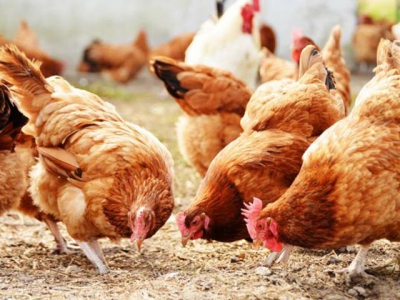Mussel meals tested for laying hen diets

Study stems from project geared toward new way of farming mussels in coastal waters to mitigate nutrient overloading.
Researchers from Aarhus University in Denmark are in the midst of an experiment on a commercial organic farm to test the feasibility of replacing fish meal with mussel meal in diets fed to laying hens.
Researchers with the Aarhus departments of animal science and food science are testing either mussel meal with the shell or deshelled mussel meal in terms of the resulting egg production and egg quality from the laying hens.
The two types of mussel meal are produced using two different processing methods, Aarhus said, explaining that deshelled mussel meal is 100% free of shells, while mussel meal with the shell has a strongly reduced shell fraction (almost, but not 100%, shell free).
The experiment, which started in May and runs until September, involves six houses with outside access, each housing 36 hens, Aarhus said. There are two replicas per treatment.
The researchers collected zero-measurement egg samples before the experiment started, and they will take egg samples several times during the experimental period to analyze egg quality, the university said. Feeding birds the experimental diets was initiated in mid-May.
The project will involve two other feeding experiments with pigs: one to test the growth performance of organic piglets fed deshelled mussel meal, and one where researchers will look at the feed intake pattern of weaned pigs fed mussel meal or mussel silage.
The experiment is part of the MuMiPro project, led by Danish Shell Centre, DTU Aqua. MuMiPro aims to develop a new way of farming mussels, with a goal of mitigating negative effects of nutrient overloading in coastal waters. The harvested mussels will be upcycled into feed for monogastrics like pigs and poultry, Aarhus said.
Related news
 Designing poultry nutrition programs to optimize profitability
Designing poultry nutrition programs to optimize profitability Designing nutrition programs to optimize profitability requires knowing and understanding goals and working with processing and sales to understand their needs.
 Organic trace minerals aid in optimizing poultry performance
Organic trace minerals aid in optimizing poultry performance As rising production costs pressure profit margins in the poultry industry, nutritionists must continually search for ways to accomplish more with less
 6 antibiotic-free supplements that can harm water lines
6 antibiotic-free supplements that can harm water lines Products designed to feed and strengthen the birds can be nourishing and fortifying biofilm-forming bacteria.